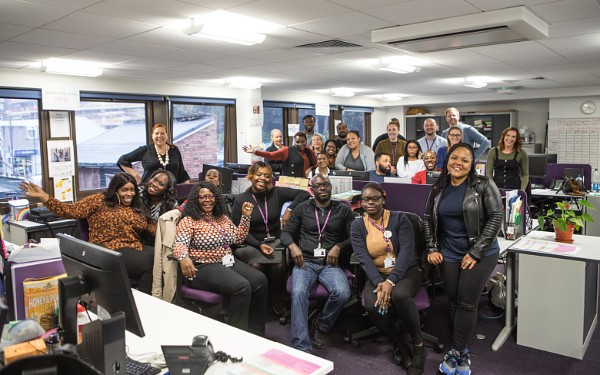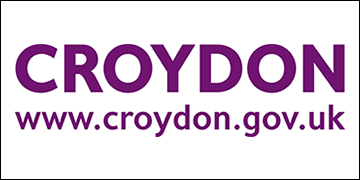Katherine Hunt believes the key to working with adolescents is ensuring your passion and desire to make a difference is clear to the young person and their family.
“I believe it is this approach [in Croydon] which has allowed us to work successfully with many families who have often been described as ‘non-engaging’ whereas in reality we just hadn’t found the right way to work with them.”
Katherine has been a team manager in Croydon’s adolescent services since January and says what attracted her to the council was the opportunity to work creatively with adolescents.
Freedom to do things differently
“We have permission from our senior leadership team to do things differently and its widely accepted that for many of our young people a traditional social work approach won’t work. As a manager that gives me a lot of freedom but with the confidence of knowing I am supported by managers who understand the needs of these young people.”
On the face of it, Hannah Doughty, head of adolescent services, knows that many social workers and team managers might look askance at the task in Croydon.
The local authority was rated ‘inadequate’ by Ofsted 2017 (although subsequent monitoring visits have been far more positive) and is one of the most challenging environments in the country in which to work with adolescents at risk from factors outside of the home environment.
“We have some of the highest levels of knife crime, youth offending, CSE, county lines and child criminal exploitation. We also have high levels of children going missing from both home and from care.”
Volume and diversity of work
But this is what excited Hannah in the first place, when she moved from Liverpool to head up the adolescent service two years ago. She was attracted by the volume and diversity of work and also by the opportunity to try new approaches.
“We have to do things differently in Croydon, we have no choice. Our executive director and our DCS are very clear about that and so I’m all about recruiting people with different and creative ideas so we can develop some leading methodologies of working with adolescents in these extremely challenging contexts. I want Croydon to be the leading council in the country when it comes to developing approaches that work with adolescents.”
Hannah agrees it takes a special kind of person to work with such high-risk adolescents but those who do often find it the most rewarding area to work in, she says.
“The relationships you forge aren’t instant but they’re often the most special because you’ve had to work so hard to build them. And once teenagers have decided they trust you it’s brilliant.”
Strong professional networks
Katherine agrees the level of risk they have to carry in the team is high. “But what I have found really refreshing is that I don’t ever feel I am managing the risk alone. There are really strong professional networks here. Croydon’s complex adolescent panel is held weekly and is a multi-agency panel where our most complex young people are discussed and joined up planning can take place.
“It takes time to build relationships with adolescents and we recognise this. Many have had social workers who have, in their eyes, let them down and not made any difference to their lives. My team has to be very tenacious but we are able to spend time with the young people to build that trust and get to know them. We can also offer to work with them. Peer relationships are so key at this age and stage and so wherever that is safe, and possible, we try and facilitate change through peers because that will have a bigger influence than just us doing it alone.”
Hannah also gives an example of a group of teenagers who were missing and nobody knew where they were, including their mothers.
“Kath recently suggested us having a group meeting with all the mothers and I thought – well why not. It can’t hurt and we might find a breakthrough. We’re hopeful it will work but if it doesn’t we’ll try something else.”
Systemic approach to social work
Underpinning all these different ideas is a systemic approach to social work and systemic training is currently being rolled out to every manager and practitioner across Croydon’s children’s services.
Nana Bonsu, the systemic practice service lead at Croydon, is both a qualified social worker and a qualified psychotherapist. She says working with adolescents at high risk from factors outside of the home requires systemic thinking.
“It’s about understanding there’s no one single story, no one single truth. Everything depends on perspective and I very much see my job as to help practitioners find different ways to look at situations and to bring other perspectives in to help find those interventions that will really work.”
In Croydon, any case involving an adolescent will begin with a family group conference, where preventative work is done, such as discussing other family members prepared to take in an adolescent if a crisis situation occurs.
Targeted approach to edge-of-care cases
Adolescents considered on the edge-of-care, such as those repeatedly going missing, are provided with swift, intensive but time-limited work to try and stop crisis events happening
Croydon is also using motivational interviewing and restorative practice, as well as bringing social workers, youth justice and youth workers together on cases, although each still maintain their own statutory responsibilities.
Hannah says: “If it’s the youth worker that has the best relationship with a family then it is the youth worker who will take the lead. We are already starting to see the youth workers and social workers sharing skills with each other and it’s really working for us. We’re already seeing the number of child protection plans coming down.”




 Facebook
Facebook X
X LinkedIn
LinkedIn Instagram
Instagram